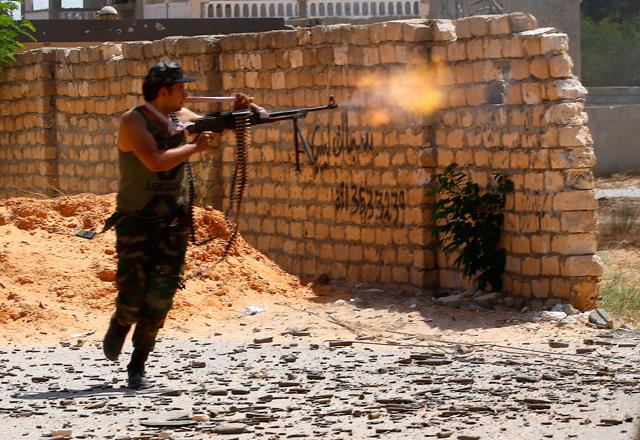- Local News
- Tue-2020-10-27 | 04:41 pm

Nayrouz News Agency :
Dozens of Libyan delegates Monday opened a political dialogue via videoconference as a step towards holding elections after a landmark ceasefire agreement between warring factions in the North African country.
The UN mission in Libya said the political talks, which it is brokering, would pave the way for a "direct, in person meeting" of the Libyan Political Dialogue Forum (LPDF) on November 9 in the Tunisian capital.
The goal of the LPDF would be to "generate consensus on a unified governance framework and arrangements that will lead to holding national elections", it said.
On Friday, Libya's rival administrations signed a "complete and permanent ceasefire agreement with immediate effect" after five days of talks in Geneva.
Libya has been wracked by conflict for nearly a decade, since the overthrow and killing of leader Muammer Qadhafi in a NATO-backed uprising in 2011.
It has since been dominated by armed groups and divided between two bitterly-opposed administrations: A UN-recognised Government of National Accord based in the capital Tripoli and another in the east backed by military strongman Khalifa Haftar.
The UN mission said Monday's videoconference comes "at time of an overwhelming sense of hope emerged in Libya" after the signing of the permanent ceasefire deal.
It said 75 Libyan personalities were taking part, including representatives of its rival parliaments and civil society activists, several of them women.
High-ranking officials were not involved.
Participants were "drawn from different constituencies, based on the principles of inclusivity, fair geographic, ethnic, political, tribal and social representation”, it said.
"During the online consultation meeting on Monday participants... will be briefed on the intra-Libyan economic and military tracks facilitated by UNSMIL,” the United Nations mission.
"They will also hear the recommendations emerged from the consultative meetings with mayors, and representatives of women and youth groups,” it added.
UNSMIL urged participants to "shoulder their responsibility before the Libyan people and engage constructively and in good faith in the talks and to uphold the interests of Libya”.









